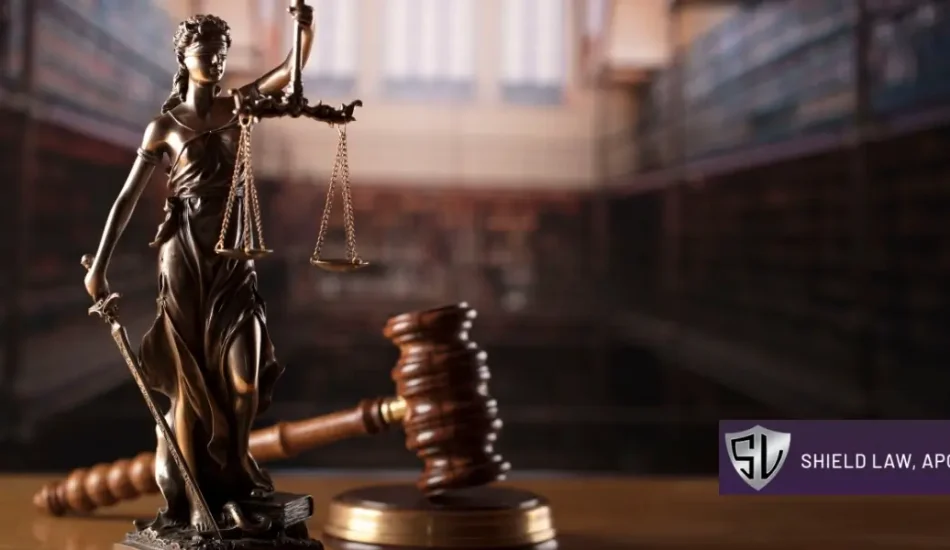Being released on parole can allow you to enjoy many freedoms before you serve out your full sentence. The length of time you have to be on parole in California depends on the offense, original sentence, and how well you comply with parole. On average, parole ranges from one to several years, with serious felonies often requiring longer supervision. Meeting all conditions of parole can enable the restrictions to end on time.
What Is the Difference Between Parole and Probation in California?

Parole and probation both reduce the burden of confining convicted criminals and defendants in jail or prison. Both parole and probation could have a role in someone’s criminal case and in how they are sentenced. If you are facing a serious criminal charge, you may be wondering, “What is the difference between parole and probation in California?” It is crucial to learn the important distinction between these two alternatives to incarceration.
Understanding Parole in California
Parole is the conditional release of a person from prison before the completion of their full sentence. California’s correctional system supervises a significant population, with roughly 259,000 individuals currently on probation or parole and about 199,000 incarcerated. Parole laws determine how and when eligible individuals can transition from prison back into the community under supervision.
If someone is granted parole, they must follow strict rules or risk being returned to prison.
In 2025, approximately 7,999 parole hearings were scheduled statewide, reflecting a 3.4% decrease compared to 2023.
Each hearing allows the Board of Parole Hearings to review an inmate’s record, behavior, and readiness for release. For those navigating this process, having legal guidance can be crucial when preparing for hearings and ensuring compliance with complex requirements.
Understanding Probation in California
Probation is a legal alternative to incarceration that allows individuals to remain in the community under court-ordered supervision instead of serving their sentence in jail or prison. Probation is often given during sentences at the advice of prosecutors.
During plea bargaining, the prosecution may offer probation in lieu of incarceration as a motivator for the defendant to accept a deal. Under California probation laws, this arrangement comes with strict conditions that must be met, such as meeting on a regular basis with a probation officer and avoiding new arrests.
Violating the terms of probation can lead to a return to jail or prison. A probation attorney can explain the exact requirements to their client so there are clear expectations on what can and cannot occur during probation.
Once probation begins, the defendant can exhibit good behavior and potentially have their probation period reduced or their restrictions lightened. Legal representation can help anyone on probation follow the terms of their probation order.
Potential Penalties for Violating Either
Violating the terms of parole or probation can lead to serious consequences under California law. Probation violations can result in something as light as a warning or additional conditions, like the requirement to wear an ankle monitor. In other cases, probation may be revoked altogether, which could require you to serve your sentence in jail or prison.
Parole violations can also lead to stricter supervision, mandatory programs, or being returned to custody to serve the remainder of the original sentence. If your parole violation involves visiting the victim of your crime when you were told not to, or another serious offense, you could face additional criminal charges.
To avoid being returned to custody or having to undergo mandatory monitoring programs, remain in close contact with your probation or parole office. It is also advised that you frequently consult your attorney throughout the supervision period.
contact ourSHIELD LAW, APC.
Call For A Consultation323-633-0176
FAQs
Hire a Probation Lawyer From Shield Law, APC
Parole and probation serve different purposes in California’s criminal justice system. Each carries specific conditions that must be met, and violations can result in incarceration and other consequences. Understanding the distinction between the two is critical for avoiding serious legal consequences, which could affect your freedom and future.
At Shield Law, APC, Professor Kareem Aref draws on his extensive trial experience in state and federal courts to defend clients in parole and probation violation cases. His background as both a prosecutor and a defense attorney provides insight into building strong strategies, and he can advise clients on parole or probation-related matters. Contact our office today to schedule a consultation on your parole or probation case.

